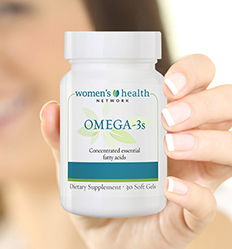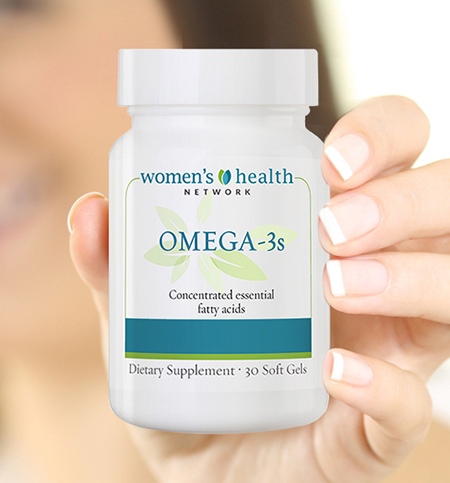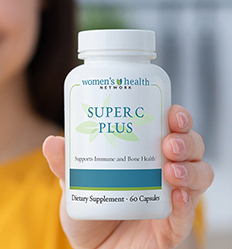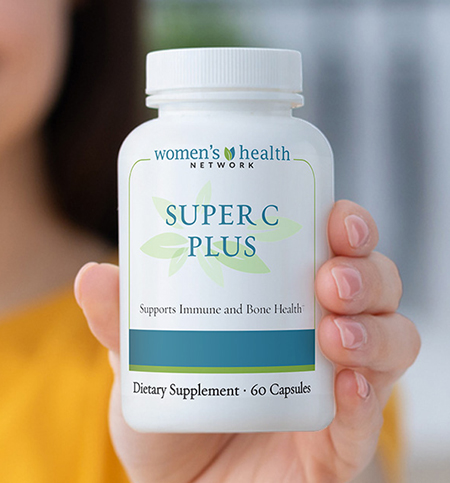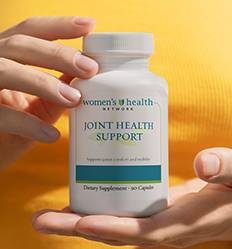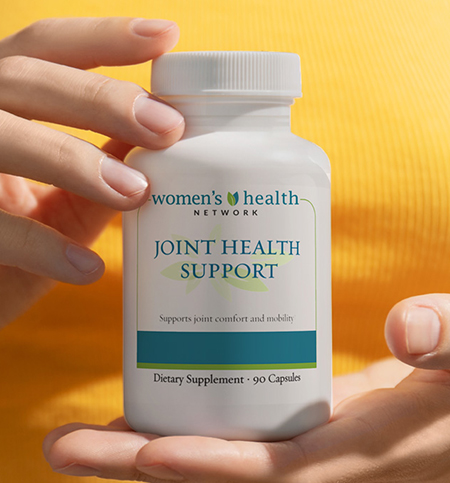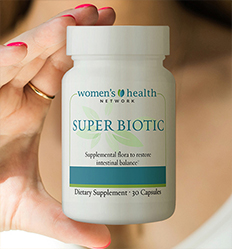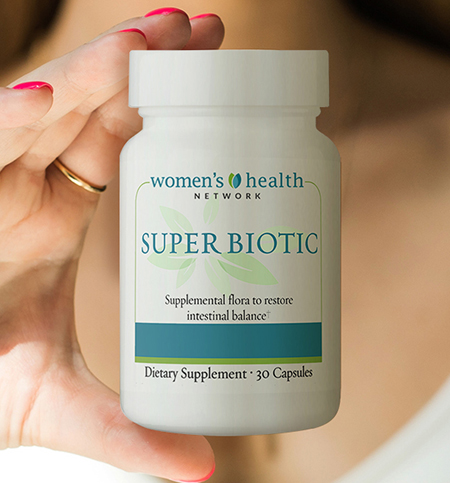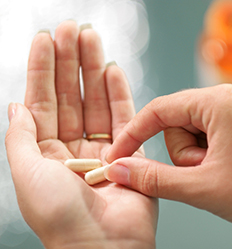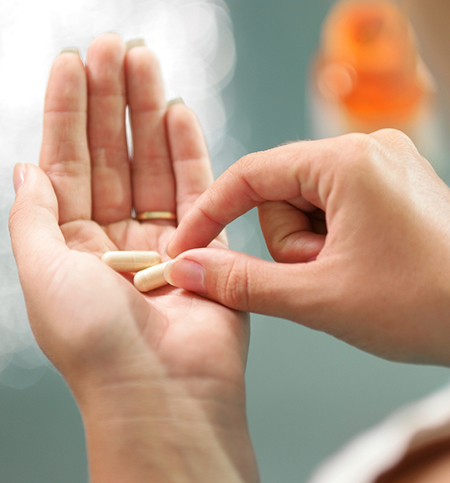Authored by Dr. Sharon Stills, NMD
Chronic inflammation can disrupt your daily life with constant aches and pains, and in the long run may increase your risk for autoimmune issues and other serious health problems. If you’ve been struggling with the effects of chronic inflammation, you need to know that potent anti-inflammatory relief is at your fingertips in the form of vitamins, minerals and other natural compounds that can stop inflammation in its tracks.
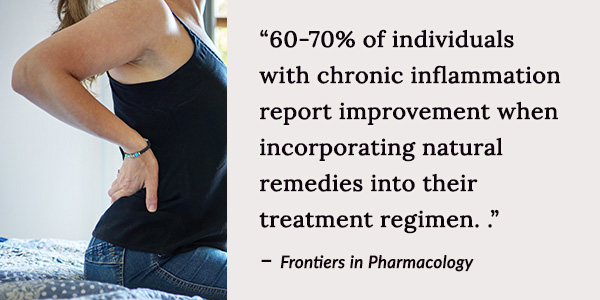
What causes chronic inflammation?
You’ve likely experienced acute inflammation with the heat of a fever, the swelling of an injured knee and the redness of a newly formed cut. This healthy inflammation is an immune response that’s triggered when your body is injured, exposed to chemicals and toxins, or invaded by bacteria, viruses or parasites.
Acute inflammation is a necessary function of the body, but this responsive process is only meant to be a short burst of activity. Once the trauma goes away, inflammatory cells and molecules are supposed to recede so the healing process can begin.

When inflammation doesn’t turn off like it should, it turns into harmful chronic inflammation which can last for weeks, months or years. Chronic inflammation is damaging because it acts like a slow-burning fire, continuing to stimulate pro-inflammatory immune cells that can begin to attack healthy areas of your body. Chronic inflammation can have very real effects on your health.
Symptoms of chronic inflammation
- Fatigue
- Aches and pains
- Depression and anxiety
- Congestion
- Dry eyes
- Digestive issues
- Skin problems
- Gum disease
- Stubborn weight gain
7 best vitamins and supplements for chronic inflammation relief
How can you reverse course on chronic inflammation? The good news is that nature provides us with a wonderful “toolbox” of vitamins, herbs and other natural compounds that can douse the flames of chronic inflammation and restore balance to the inflammatory response.
Omega-3 fatty acids
Omega-3 fatty acids (EPA and DHA) help reduce the over-production of inflammatory molecules in the body, helping to rebalance the inflammation response. When cells get enough Omega-3s, metabolites of the fatty acids turn on a healing response that helps the tissue or cell repair any damage caused by inflammation. Incorporating Omega-3s into your diet can be as simple as consuming fatty fish such as salmon, mackerel or sardines twice a week. Alternatively, high-quality fish oil supplements can provide a convenient and concentrated source of Omega-3s for immediate relief.
Curcumin (turmeric)
Curcumin, a compound found in the culinary spice turmeric, helps modulate the body’s inflammatory response by inhibiting pro-inflammatory molecules. Studies have shown that curcumin helps to reduce symptoms related to IBD, arthritis, psoriasis, depression, atherosclerosis and other inflammation-related health disorders. Incorporating turmeric into your diet (it’s easy to add to soups and chilis) or taking a curcumin supplement can help manage chronic inflammation. Combining curcumin with black pepper or piperine enhances its absorption and effectiveness.
Green tea extract
Special antioxidants called catechins help inhibit the activity of certain inflammatory enzymes. Green tea contains high levels of EGCG, the most powerful type of catechin, making green tea a potent form of protection against inflammation. Regular consumption of green tea or green tea extract can contribute to overall wellness and combat inflammation. Our exclusive Super C Plus supplement contains both curcumin and green tea extract.
Ginger
Ginger has been used for its medicinal properties for centuries, but now modern medicine is tapping into the power of this root for its anti-inflammatory properties. According to a 2022 review study published in the journal Molecules, researchers now believe there is enough evidence to prove that ginger possesses multiple active compounds that reduce inflammation. Ginger may be especially helpful for people with arthritis. Add ginger to foods for a warm and spicy kick or make sipping a mug of fresh brewed ginger tea part of your daily routine!
Boswellia (Indian frankincense)
Frankincense, an aromatic resin derived from the Boswellia tree, has been a go-to in traditional medicine for its anti-inflammatory properties. We now know that Boswellia/frankincense contains active compounds that inhibit the production of pro-inflammatory molecules in the body. Frankincense or Boswellia supplements may be especially beneficial for people dealing with arthritis and asthma, and is a key active ingredient in our Joint Health Support formula for relief of painful joint inflammation.
Vitamin D
Vitamin D has potent anti-inflammatory properties, including the ability to aid in increasing anti-inflammatory cytokines. Studies have demonstrated that women with chronic inflammation have increased levels of certain pro-inflammatory markers such as C-reactive protein (CRP) and that Vitamin D may help decrease CRP levels. Vitamin D deficiency has been linked to increased inflammation, so if you have low levels of the vitamin, supplementation with Vitamin D may help you get a jump start on inflammation relief.
Probiotics
Probiotics help improve gut health, but these beneficial bacteria also have a profound impact on inflammation by reducing common biomarkers of inflammation, including C-reactive protein (CRP), and reducing risk for dangerous cytokine storms. Probiotic-rich foods include lacto-fermented vegetables, yogurt and kombucha. Taking a high quality probiotic supplement can ensure you get enough beneficial bacteria every day.
Our tips and recommendations on how to reduce chronic inflammation – naturally
The underlying causes of chronic inflammation are complex: lack of exercise, genetic tendencies, over-exposure to toxins, emotional trauma, lack of sleep and chronic stress all contribute to inflammation dysregulation. Women may have one overwhelming factor contributing to their chronic inflammation, such as chronic stress, or have an interplay of multiple factors.
To get at the root of chronic inflammation, do what you can to address risk factors in your own life.
Adjust your response to stress
Inflammation can be triggered in response to stress and anxiety. The body interprets these emotions as internal invaders no matter what their cause and releases inflammatory markers everywhere throughout the body to head off impending danger.
The more stress in your life, the more likely it is you’re headed towards an inflamed state. For relief, consider starting a meditation program or try journaling every night — both help release stress. The options for stress reduction are endless, so if the first one you try doesn’t seem right for you, move on to others until you find the one that does.
Cut out the chemicals
Exposure to pesticides and preservatives causes inflammation by invading cells and destroying tissue. Our gut flora, which acts as another sort of immune system is also greatly affected by these chemicals. Repeated exposure kills off this crucial line of defense, leading to further tissue death and inflammation.
Be especially careful with cleaning products. There are many natural “green” options for cleaners that are effective and much less toxic to you and your family. Read labels carefully when it comes to cosmetics, shampoo, toothpaste and other personal care products. Avoid phthalates and parabens whenever possible.
You can also reduce your chemical exposure with better food choices. Try to eat seasonal, local and, especially, organic as often as you can, and wash your vegetables well when you can’t. Stick to homemade food instead of highly processed foods that come in plastic containers.
Enjoy being active
Regular exercise reduces inflammation very effectively by improving circulation and lymphatic flow, and reducing body fat. You can do any type of exercise as long as it gets your heart pumping. Set a goal to work out for at least 30 minutes, 5 days a week and work up to it bit by bit.
Keeping a healthy weight is so important to put inflammation in its place. When the body is under metabolic stress, as it is with obesity, fat cells can help initiate an inflammatory reaction and actively block weight loss. This happens because fat cells can act like immune cells by releasing cytokines, which push immune cells to initiate an inflammatory reaction.
Make sleep a true priority
If I had to choose one good thing to tell my patients to do for themselves, it’s to prioritize developing a sleep schedule, and then follow it closely. Sleep is the time when your body is able to heal from the physical and emotional traumas of the day. Interrupted, poor quality sleep cuts sharply into that healing time.
It’s tempting to stay up to work or catch up on social media. Be good to yourself and go to bed at a reasonable hour, and keep the room cool, dark and comfortable. Remove the television and phone from the bedroom, and allow yourself time to settle down and just be still. If you have trouble sleeping, consider supplementing with melatonin, a natural sleep hormone that helps maintain a healthy circadian rhythm. Melatonin is also anti-inflammatory!
Remember, you don’t have to make all of these changes at once. Pick one to get started and when it becomes part of your routine, choose another to add. Stacking up good habits is like taking a fire hose to the flames of chronic inflammation. You will feel better in the short-term, but it’s also an important step towards protecting your health for the long run.







